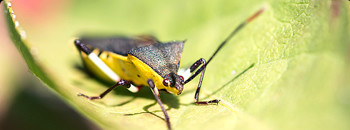Media coverage about pesticide bans in Canada is popping up like the dandelions are popping up in the resident’s yards. Recent articles in the Guelph Mercury and the National Post give insight on how quickly yards are going from green to yellow and how weeds are uncontrollable without the option of using effective herbicide products.
Two years ago, the City of Guelph banned landscaping companies from using pesticides, a bylaw that was recently extended to all residents in the province. Marty Kendall is part of a family lawn care company that lost 30 percent of its business when the ban came into effect and from his understanding, “the only way to take those weeds out for good is with pesticides.” He also added that “lawns are a competition for space, so if you don’t take the weeds out, the weeds will win the war.”
Murray Cameron is the city’s manager of parkland and greenways and he admits that weeds are something that people “are just going to have to accept. We do our best but in some ways, it’s the new esthetic. You have to get used to the weeds.” In order to control the weeds without the use of pesticides, the amount of physical labor increases. Seasonal workers have to cut the grass every 10 business days in an attempt to chop the heads off the dandelions before they seed.
The National Post in Ontario wrote about residents having the same problem. “It took a while for the full impact of this ban to become apparent,” the article stated. “Now, however, the weeds are here to stay. Forever. Residential streetscapes have switched from green to yellow. To white and fluffy. And back to yellow again.”
The article also states that there is no scientific evidence that government-regulated pesticides, when used correctly, pose any threat to human health, which means the entire effort to ban pesticides was unnecessary.
Even though the Pest Management Regulatory Agency said that the ban was for “our children’s health,” unchecked weeds are causing problems on lawns, parks, school yards and sports fields. When it rains, fields are becoming a “slippery, muddy bog” since there isn’t lush grass to act as a sponge for rainwater. When it’s hot, the surface becomes like concrete, and parents are concerned about the increase of skinned elbows and twisted ankles.
When these bans were proposed, many residents didn’t consider the unintended consequences. Once they realized the end result, there has been a shift in attitudes toward the effort. Let us know what you think – would you be okay with “getting used to the weeds?”

